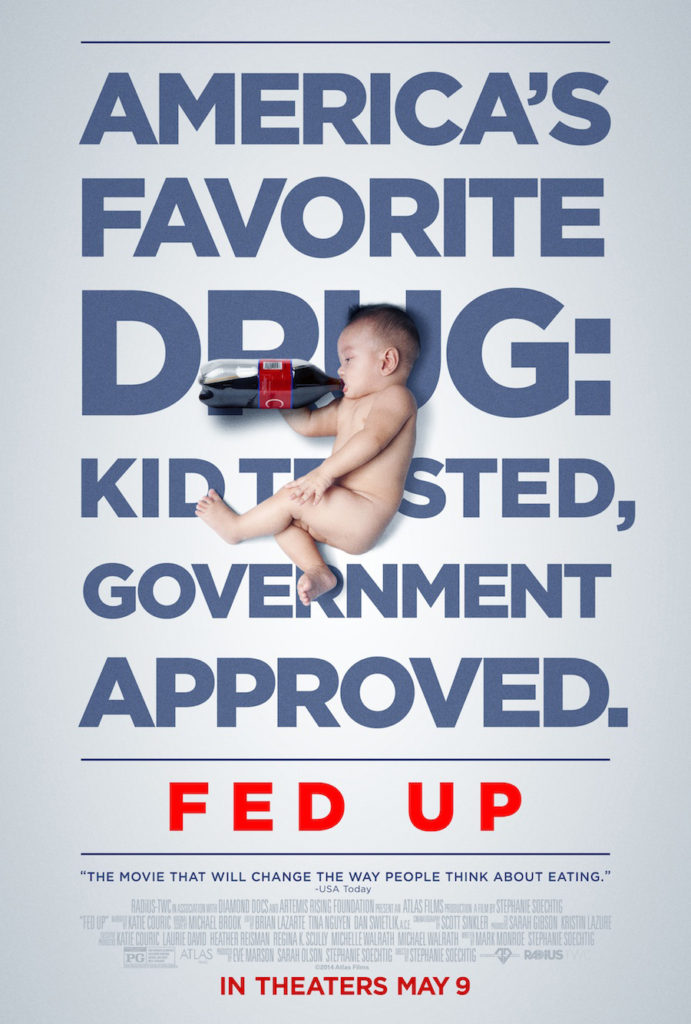I was a sugar addict. I wasn’t aware of it until recently, but my body craved sugar like clockwork. My mid-day sweet, something I thought of as simply a daily indulgence, was not just a treat—it was a necessity. I had no idea how dependent I had become on the sweet stuff until I challenged my family and myself to the sugar detox. And then everything changed.
Until very recently, I was proud of my efforts to feed my family healthy food, but my choices weren’t as good as I thought. The fact is we can only be as “healthy” as the information we have. It seemed I lacked a ton of it, causing me to occasionally feed my kids up to 10 times the amount of sugar recommended for a balanced diet. Somehow, in the scramble to eat fat-free, low-calorie, low-carbohydrate, organic, grass-fed, antibiotic-free food, we seemed to have skipped over sugar. But after watching the documentary Fed Up last summer, that all changed.
Like most documentaries, Fed Up offers a very one-sided opinion on the topic of sugar, which is that sugar not only has a hugely negative impact on our health, but that it’s also highly addictive and is often purposely used by food manufacturers to get us hooked. But in the face of an undeniable childhood obesity epidemic—one in three kids are overweight or obese in this country—I thought, could there really be another side? Fed Up distills it down to this: Food is big business, and big business doesn’t always watch out for the well-being of our families.

The good news is that several health organizations have stepped up to the plate. In March 2015, the World Health Organization (WHO) published new guidelines recommending that adults and children reduce their consumption of sugars to less than 10 percent of total energy intake, with reduction to 5 percent associated with further health benefits. Last year, for the first time, the Food and Drug Administration (FDA) determined that 50 grams of added sugars should be the daily value for adults and children aged 4 and older. It may sound generous, but that is equivalent to just one can of soda. The American Heart Association recommends no more than 6 teaspoons (or 100 calories) a day for women and 9 teaspoons a day for men.
The FDA says reducing the amount of sugars we eat cuts calories and can help improve your heart health and control your weight. The Centers for Disease Control and Prevention (CDC) disclosed that the consumption of added sugars (not natural sugar) is associated with an increased risk of death from cardiovascular disease.
So, in the name of moderation and caring for ourselves and our loved ones to the best of our ability, Real Woman dug deep to find out just how detrimental sugar is to our health. We turned to Kathleen Bornhoeft, DNP, RN, at the Capital Health Center for Women’s Health, and Michelle Walrath, executive producer of Fed Up, to find out how sugar is really hurting us and what we need to do to take back control of what we’re eating.
How Bad is Sugar Really?
While we think mostly about kids when it comes to the detrimental effects of sugar, it’s not just young, developing bodies we need to worry about, says Bornhoeft. “Over the past 30 years, Americans have steadily consumed more added sugar, which is contributing to the obesity epidemic,” she says. Excess sugar consumption has long been shown to increase your risk of developing Type 2 Diabetes, high blood pressure, and high cholesterol, and each of these conditions can take years off your life and severely decrease your overall health.
Recent research shows that excess sugar consumption is killing us in other ways, too. A 2014 study published in The Journal of the American Medical Association showed too much added sugar could significantly increase your risk of dying from cardiovascular disease. Adults who had the highest intake of sugar, consuming 25 percent of daily calories as sugar, were nearly three times more likely to die of heart disease, compared with those whose sugar intake was less than 8 percent of their daily calories. Most recently, researchers at the University of Texas MD Anderson Cancer Center offered findings published in the journal Cancer Research that support studies that suggest people who consume more sugar have a higher risk of cancer, specifically breast cancer.
And that’s just the tip of the iceberg. A study in the New England Journal of Medicine recently suggested that higher glucose levels could be a risk factor for dementia, even among persons without diabetes. Along the same lines, a 2013 study published by the Academy of Neurology found people with higher blood sugar levels, not including those with Diabetes or already elevated blood sugar levels, were more likely to develop memory problems. Research also connected too much sugar to brain health (dementia and Alzheimer’s), depression, immune health, headaches, and conditions like high blood pressure and heart disease.
But Bornhoeft says even more information will become readily available in the near future, which will help people gain a better understanding of how to modify their diets. “We are in the midst of a paradigm shift in researching the effects of sugar on your health, fueled by the high rates of added sugar consumption by the public,” she says.
Added Sugar Versus Natural Sugar
Sugars in your diet can be natural or added. Unfortunately, you can’t tell by looking at nutrition facts or labels how much sugar is added versus natural. Added sugars are sweeteners put in during food processing, whereas natural sugars are naturally occurring in food, such as that found in fruits and milk. Natural sugar has other important vitamins and nutrients, such as fiber, which our bodies need. Bornhoeft says plain added sugar with no fiber, such as that found in cookies and candy, is simply not healthy.
The FDA prohibits labeling “includes added sugar” at this time, mainly due to the fact that the opposition has claimed it will be too confusing for consumers. “However, the American Heart Association says added sugars contribute zero nutrients and are just empty calories that can lead to extra pounds,” Bornhoeft explains. It would seem, then, that this would be a very important difference to highlight in labeling.
Based on new dietary guidelines, it’s important to limit added sugars to less than 10 percent of calories per day, Bornhoeft says.
While soda and juices are some of the worst culprits in sugar trafficking, you may be surprised to find that “healthy snacks” like yogurt are loaded with it, at up to 25 grams per individual serving. Whole-wheat bread, organic or not, can have up to 6 grams of sugar, and even chewing gum contains 2 to 3 grams in a stick. It’s where you least expect it, and often under the guise of another name.
Cutting sugar from your diet isn’t easy—I know this firsthand—especially when you’ve been addicted to it for years of your life. But the good news is that it’s worth it. After a couple of days, my mid-day cravings waned, I started sleeping better, and for the first time in 4 years, I dropped 7 pounds, and I’m back to what I consider my regular weight. And that’s pretty sweet.
ASK THE EXPERT: Michelle Walrath, executive producer of Fed Up, organic extremist, and mom of four
It was so encouraging to speak with Michelle and find that Fed Up wasn’t just a movie she worked on, but that living healthy and sharing that with others is an ongoing passion project for her. Currently, she’s working on Organic Krush, a local, organic eatery in Woodbury, Long Island where she and two partners are providing healthy organic eating options for their families, friends, and community.
RW: Why did you make the movie? Did you or someone you know have a personal experience with the pitfalls of sugar?
MW: Well, it was Katie Couric who prompted us to make a film on obesity. As we started to research, we realized the sugar industry had pulled the wool over our eyes, and if we wanted to be effective, it would take a people’s movement. So Fed Up began.
RW: What was the most shocking thing you found working on Fed Up?
MW: The hardest part was that even with access to top-notch doctors and educators, the families still couldn’t see it through. These kids are just set up for failure, and it’s heartbreaking.
RW: It can’t just be soda and candy bars adding to our childhood obesity rates. What do you think are some other influences?
MW: Flavored water—and did you ever read the labels on sports drinks? We need to pay attention to what we give our kids, and I think celebrities need to take some responsibility and stop endorsing things like soda and sports drinks to our children. They are adding to the overall cultural problem.
RW: What do you and your family eat for breakfast?
MW: Smoothies, PB&J, eggs, almond butter and bananas, quinoa with poached eggs and sweet potato hash, and I love a bagel sometimes. We eat so normally. The only difference is it’s all home-made.
RW: Do you have any real-life advice for people who want to cut more sugar from their diets?
MW: If we could just teach kids to cook a couple of simple healthy things—a good stir-fry, a burrito, a smoothie, and a simple salad dressing—they would benefit greatly, and it’s a healthy lesson that will last them a lifetime.






